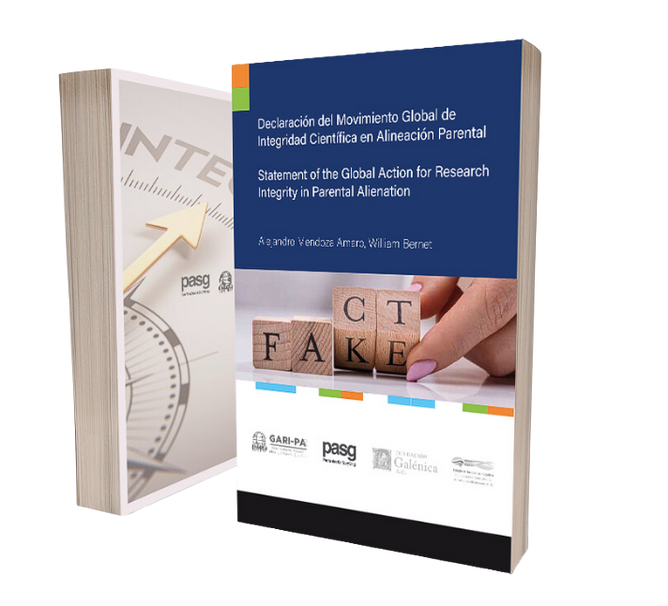
Several studies regarding research integrity in the subject of parental alienation appeared recently, what they found was a number of publications with severe errors such as falsification of data, adulteration of original sources, and defamation for which, once the retraction requests were formulated, there were no appropriated mechanisms nor scientific criteria observed, the complaints were ignored and in some cases, there was not even appropriate transparency in theprocess. Due to this situation, an international research community responsible for the matter was established, and after carefully analyzing the problem in a spirit of scientific reconciliation, they decided to create the Statement of the Global Action for Research Integrity in Parental Alienation, to develop an approach for this scientific crisis which editorial houses and otherinstitutions must responsibly address to avoid scientific fraud through screening processes in retraction, that is, meta-science activities. This Statement is an invitation for the international scientific community and for the society throughout the world so that the spirit of truth prevails over science, and so that the processes of research integrity are rectified, and to emend all possible errors in the research of a sensitive topic such as the human rights of children of divorced parents who, due to lack of awareness or ignorance, expose their children to this type of abuse.
This Statement is a highly specialized technical-scientific study on the subject of research integrity in parental alienation. It supports itself through the most relevant documents in the field, such as those of the United Nations Educational, Scientific, and Cultural Organization Chair in Bioethics, the World Conference on Research Integrity, the Global Research Council, Committee on Publication Ethics, Standard Operating Procedures for Research Integrity (SOPs4RI), as well as guidelines from publishing houses such as Wiley and Emerald, with the help of digital tools for the identification of major plagiarism. We refer to three specific works that constitute a scientific fraud and that have refused to follow the standard retraction procedures or have ignored the letter to the editor. The reputation of these institutions has caused that the content of the errors become viral and spread as a phenomenon of infodemic. We intend to reveal and focus on the negative consequences of this type of child abuse, which includes stigma, defamation, slander and libel, “scientific” misinformation campaigns, censorship, politicization, legal involution, negligent training, human rights violations, inadequate interpretation of children human rights, social distrust, discrimination, erroneous expert reports, trials with major errors(big mistake), funding and quality of research. We formulate our
proposals according to research integrity as an invitation to the institutions to review retraction procedures, especially in cases of parental alienation, we also request the support of the international scientific community and the intervention of the United Nations. We conclude that the recurrent identification of scientific fraud makes it clear that it is not a question of a theoretical or opinion disagreement among authors, but rather a serious problem of scientific malpractice that includes data falsification, adulteration of original sources and defamation.